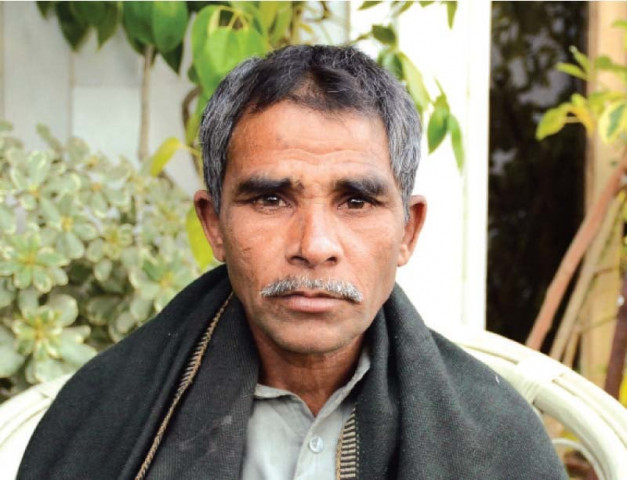Sight beyond sight: Finding courage in darkness
Javed Masih suffers from retinitis pigmentosa, an inherited condition leading to incurable blindness

Javed Masih suffers from retinitis pigmentosa, an inherited condition leading to incurable blindness.
Javed Masih is one such hero who hasn’t stopped living ever since he lost his eyesight. He has lost not only his own sight, but two of his elder brothers lost their lives to genetic blindness, a disease which is invariably fatal.
'Botched' India cataract surgery leaves 15 with sight loss
The 55-year-old has been working as a sanitary worker for the past two decades. Six years ago, when he started losing his vision, he had two options: to stop living like a regular person and let his disability cripple him, or make the most of his remaining years. He chose the latter.
“Being the youngest of six siblings, I had seen my brothers and cousins suffer and eventually lose their lives to the disease,” he shared with a pensive smile. “I feared that the disease would catch up with me someday, but had made up my mind to not spend my final years like them,” he added.
Javed suffers from retinitis pigmentosa (RP), a group of inherited eye conditions that lead to incurable blindness. Even though both his parents never lost their vision, the disease was passed down to Javed and his siblings from their grandparents. It is often not clear which family members are at risk of inheriting this condition.
In 5 minutes, he lets the blind see
“RP causes disintegration of retinal cells, first affecting the rods which enable vision in low-light conditions,” explained Dr Farooq Afzal, as eye surgeon at Shifa International Hospital. He said that night blindness is typically the first symptom of RP. He added that the disease then affects the cones, which detect light and colour.
With time, Dr Afzal says, many victims are left with narrow tunnel vision. He told The Express Tribune that there is a lot of individual variation in the disease; some are blinded in their teens, while others may retain good eyesight till their fifties.
Despite being visually impaired, Javed leaves his house every morning in search of work. He lives with his wife and four children in a slum located in Sector G-8/1, and travels to wherever he finds work by public transport every day.
“Though I support Javed’s decision to live like a regular person, I am always worried till he returns at night,” shared Shabana, his wife, caressing their 3-year-old son. She said her husband prefers doing the daily chores himself while she looks after their children.
Asia cup for blind: Pakistan win last league match
When asked how he keeps going despite his fatal condition, Javed said, “My only son, Zain, was born after I lost my vision completely, and I wanted to experience every little moment with him. If it weren’t for him, I would have given up and stopped living.”
Published in The Express Tribune, February 1st, 2016.



















COMMENTS
Comments are moderated and generally will be posted if they are on-topic and not abusive.
For more information, please see our Comments FAQ